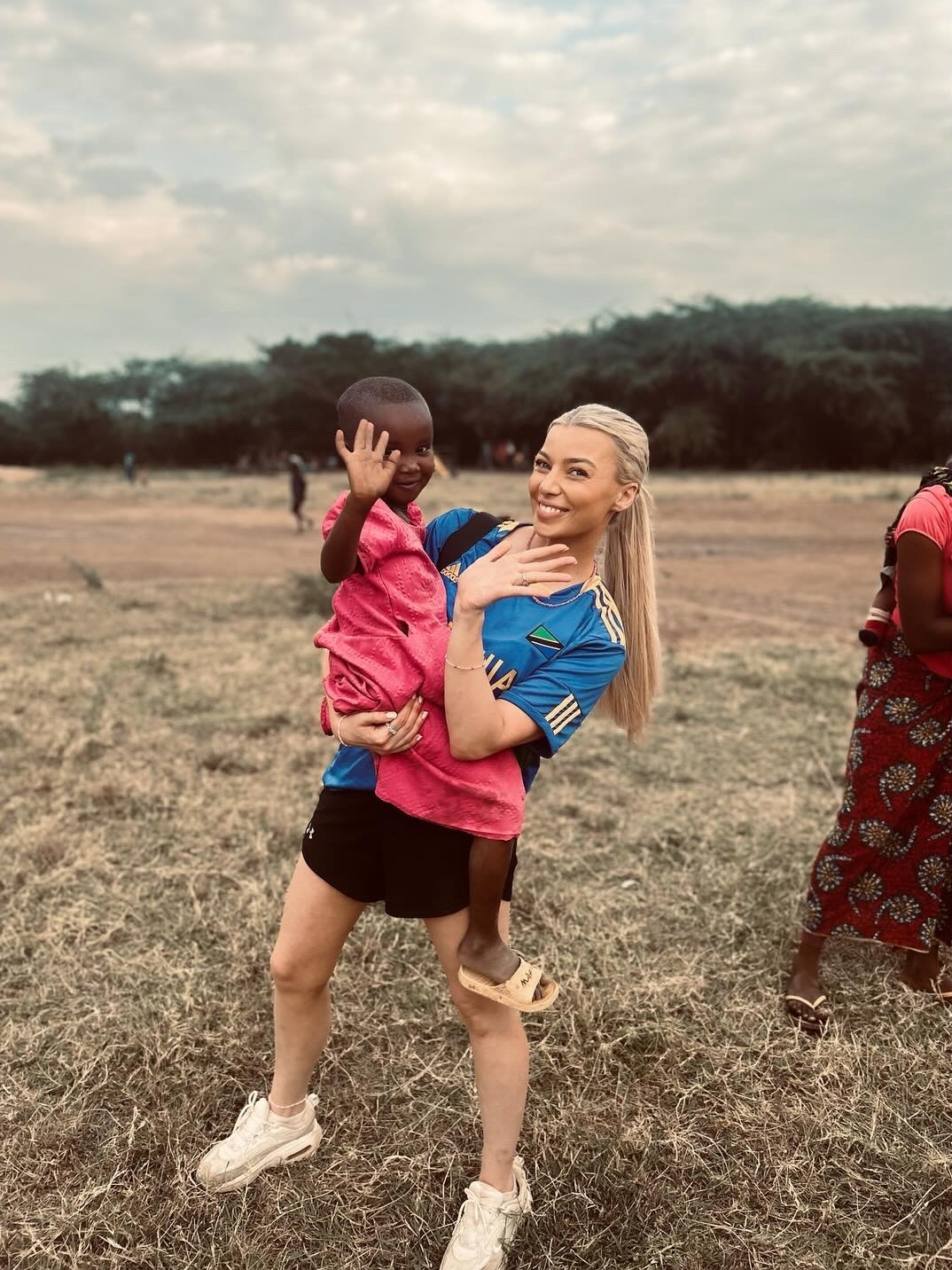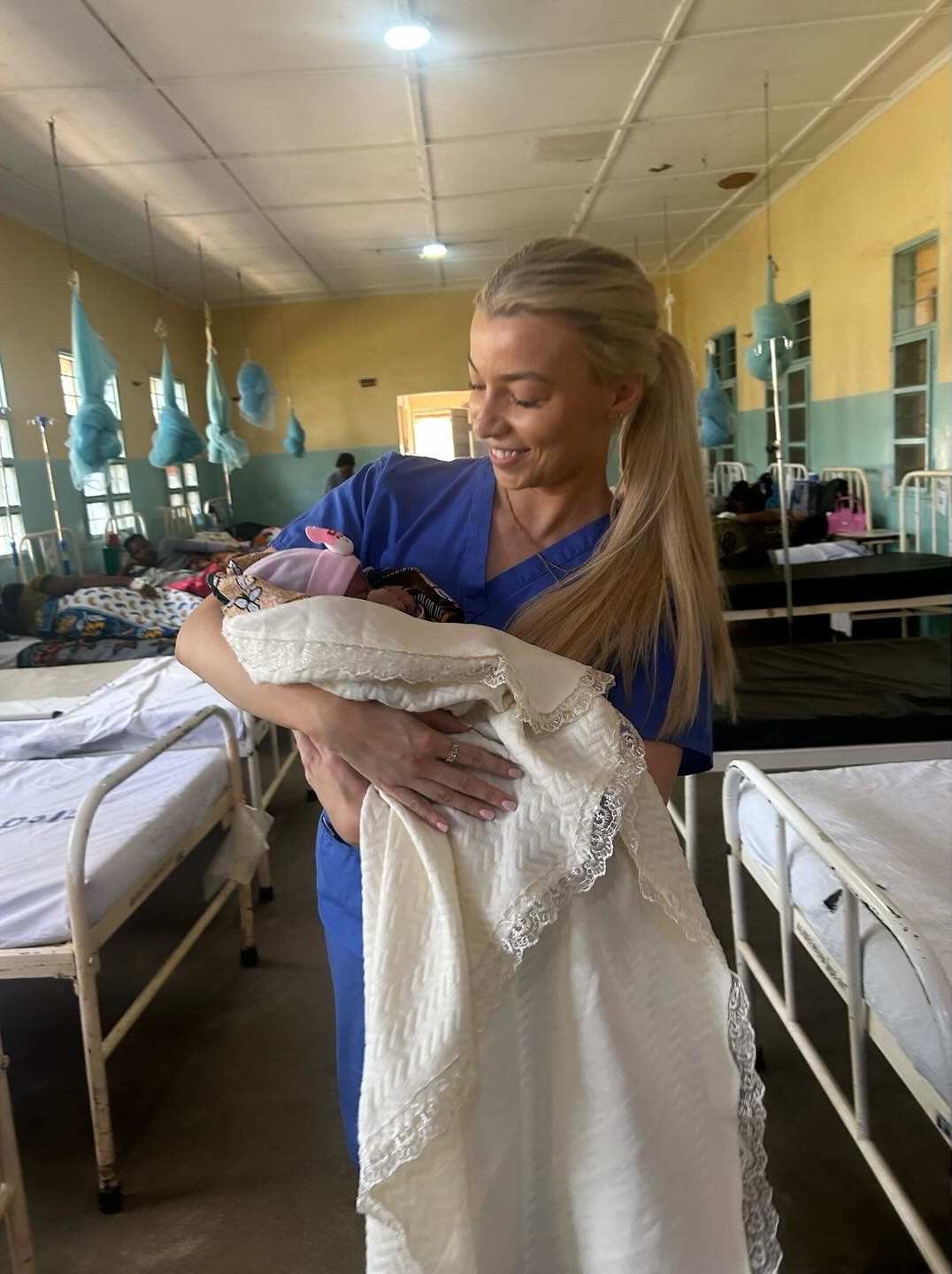 While many know “Hakuna Matata” from Disney’s The Lion King, for Lancashire Teaching Hospitals’ Neurology Specialist Nurse Bethany McGeorge, the Swahili phrase was one of many she became familiar with during a life-changing experience volunteering in Tanzania.
While many know “Hakuna Matata” from Disney’s The Lion King, for Lancashire Teaching Hospitals’ Neurology Specialist Nurse Bethany McGeorge, the Swahili phrase was one of many she became familiar with during a life-changing experience volunteering in Tanzania.
Bethany spent three weeks at Mawenzi Hospital in Moshi, Kimimanjaro, where she immersed herself in the local language, culture, and the deeply challenging landscape of healthcare, on both sides of the nurse-patient relationship!
Bethany, who is in her ninth year working in the Trust, working in neurology, started out as a staff nurse, before becoming a sister, and completing her nurse prescribing practice. She is currently in the second year of her Master's degree doing Advanced Clinical Practitioner training.
She has long had the ambition of working overseas and helping others, and during her annual leave, she arranged to work at Mawenzi Hospital through volunteering organisation Mighty Roar, which she describes as “a profound experience.”
Speaking about the visit, Bethany said: “My time in the hospital taught me invaluable lessons about empathy, resilience, and the importance of accessible healthcare.
“I learned that while systemic issues may seem challenging, small acts of kindness and support can make a significant difference in people's lives. It reinforced my belief in the necessity of advocating for change in healthcare systems globally, ensuring that financial barriers do not prevent individuals from receiving the care they deserve.
“Volunteering in Africa was more than just an opportunity to lend a helping hand; it was a profound experience that illuminated the complexities of healthcare in underserved communities. The challenges I observed have left a permanent mark on my heart and mind, driving me to continue my advocacy for equitable healthcare access.”
As well as working in healthcare, Bethany was also required to experience it herself, when she ended up in a hospital bed whilst becoming ill during her time there. She explained: "Unfortunately, I was poorly while I was there - I needed IV (intravenous) fluids and antibiotics, so I saw the other side of things as well!
“I stayed in hospital for a few nights but recovered quickly. I picked up a bit of Swahili, which the ward rounds are spoken in, which made things interesting! A common phrase there is poley poley, which means slowly, slowly, which is the pace of things. The amount I picked up in that short space of time was amazing.”
The whole experience whetted her appetite to make further trips in future, and Bethany explained what it had meant to her: “I’d recommend it to anyone, it was an enlightening experience and has deepened my appreciation for the National Health Service.
While Bethany was able to impart some of her knowledge, it was frustrating not having similar resources to those available at home: “It was amazing, from a cultural point of view, seeing how people manage without the resources we have.
 “It was an eye-opening experience that reshaped my understanding of healthcare. The stark reality that many of us are fortunate enough to overlook is the vital connection between health, financial stability, and survival.
“It was an eye-opening experience that reshaped my understanding of healthcare. The stark reality that many of us are fortunate enough to overlook is the vital connection between health, financial stability, and survival.
“The hospital I volunteered in faced overwhelming challenges. Patients can't leave hospital until they have paid their medical bills, which add up on a daily basis. It all leads to extended stays that compounded both their financial burdens and the hospital’s operational difficulties.
“It was heart breaking to see individuals who, despite receiving necessary care, found themselves trapped in a cycle of escalating costs and prolonged recovery.”
The lack of observation machines meant that many cases had to be assessed clinically, as numerous patients could not afford necessary diagnostic procedures such as X-rays or MRI scans. This forced medical staff to rely heavily on their clinical judgment, often without the support of technology that is commonplace in more resourced healthcare settings.
She added: “My passion is neurology - my dad was diagnosed with primary progressive multiple sclerosis, so I’ve always wanted to help people within that specialty, however without a neurology centre at Mawenzi hospital , I found it upsetting and also frustrating because a lot of the neurology patients often got overlooked, especially those with Motor Neurone Disease, Myasthenia Gravis and Guillain- Barre syndrome for example.”
Nursing is defined by caring, and Bethany is determined to help others less fortunate around the globe: “I have the bug now, I want to go to other deprived areas and help people. Hopefully I can do more.
“I’ll finish my Master’s next summer, and I like the idea of going somewhere that really needs help. Obviously, there are risks of working abroad, however I’d like to be able to help people and I love a challenge!”







